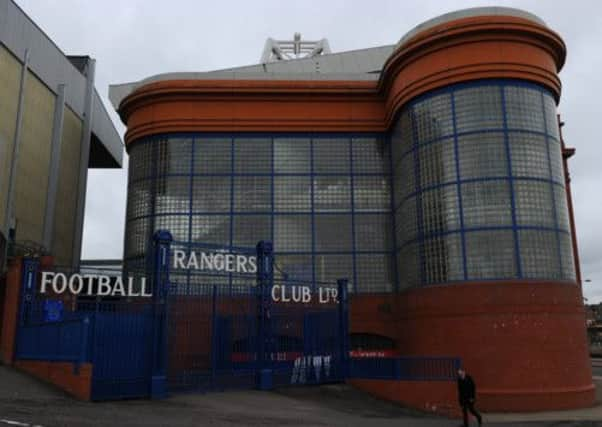Rangers fans torn between rebel and Light Blue sea


The two factions presently on the ballot paper must seem to the non-aligned about as attractive as rutting wart-hogs.
On one hand, a sitting board of directors whose imaginative response to the threat of usurpation appears to have been limited to the hiring of a PR company with a reputation for smearing opponents through liberal use of all available media outlets, from the club’s own to the social networks of the worldwide web.
Advertisement
Hide AdAdvertisement
Hide AdOn the other, a band of would-be revolutionaries whose nominated “leader”, Jim McColl, is a billionaire who has stated that he has no intention in the near future of investing any money in Rangers or playing so much as a minor role in the governance of the company.
For voters at the AGM, the election is likely to represent an invitation to choose the less harmful of the two. With the big event still at least a month off, there will be a bone-chilling number of opportunities for further demonstrations from both sides of the kind of infantile, risible and, in certain instances, sordid attempts at points-scoring that have been witnessed in recent times.
For example, Paul Murray, the poster boy of the group agitating for reform of the board, including the removal of what may be called the office bearers – chief executive Craig Mather and finance director Brian Stockbridge, as well as director Bryan Smart – this week made a call for “transparency” from the directors by demanding the release of the identities of the people behind two companies who have invested in Rangers, Blue Pitch Holdings and Margarita Holdings.
As a shareholder himself, Murray will be perfectly aware of his right to obtain this information simply by asking for it. He may then go public with it, although it is impossible to fathom why the names of those behind the holding companies should be of any import.
Murray’s attempted capture of the headlines was sufficiently pathetic to reinforce the impression – formed over the past three years – that his principal credential as a prospective saviour of an ailing institution is that he is a genuine, lifelong fan.
Even so, the general weakness of his profile did not prevent the voice of one red-top from declaring his endorsement of Murray and his simultaneous condemnation of the PR company, Media House, and its busiest representative, Jack Irvine.
The latter, himself a former tabloid editor, was roasted for his readiness to blacken the names of his employers’ opponents with some lacerating postings on Twitter. This reprehension of Media House was a startling renunciation of the paper’s previous accommodating policy towards the company.
This willing collusion obtained in the days when MH’s primary objectives were the scandalous portrayal of the Celtic managing director, Fergus McCann, as some kind of villainous incompetent and the absurd promotion of David Murray, the Rangers owner, as an entrepreneurial and financial genius.
Advertisement
Hide AdAdvertisement
Hide AdThat they could have been proved by subsequent events to have been so grotesquely and blatantly mischievous in their persecution of McCann and their miscasting of Murray would, of course, be a matter of complete indifference, as long as their fees were paid. It will be recalled, however, that their propaganda campaign was so successful that Celtic supporters actually booed McCann as he unfurled the league championship flag on the opening day of the 1998-99 season, an ineradicable testament to their shameful gullibility.